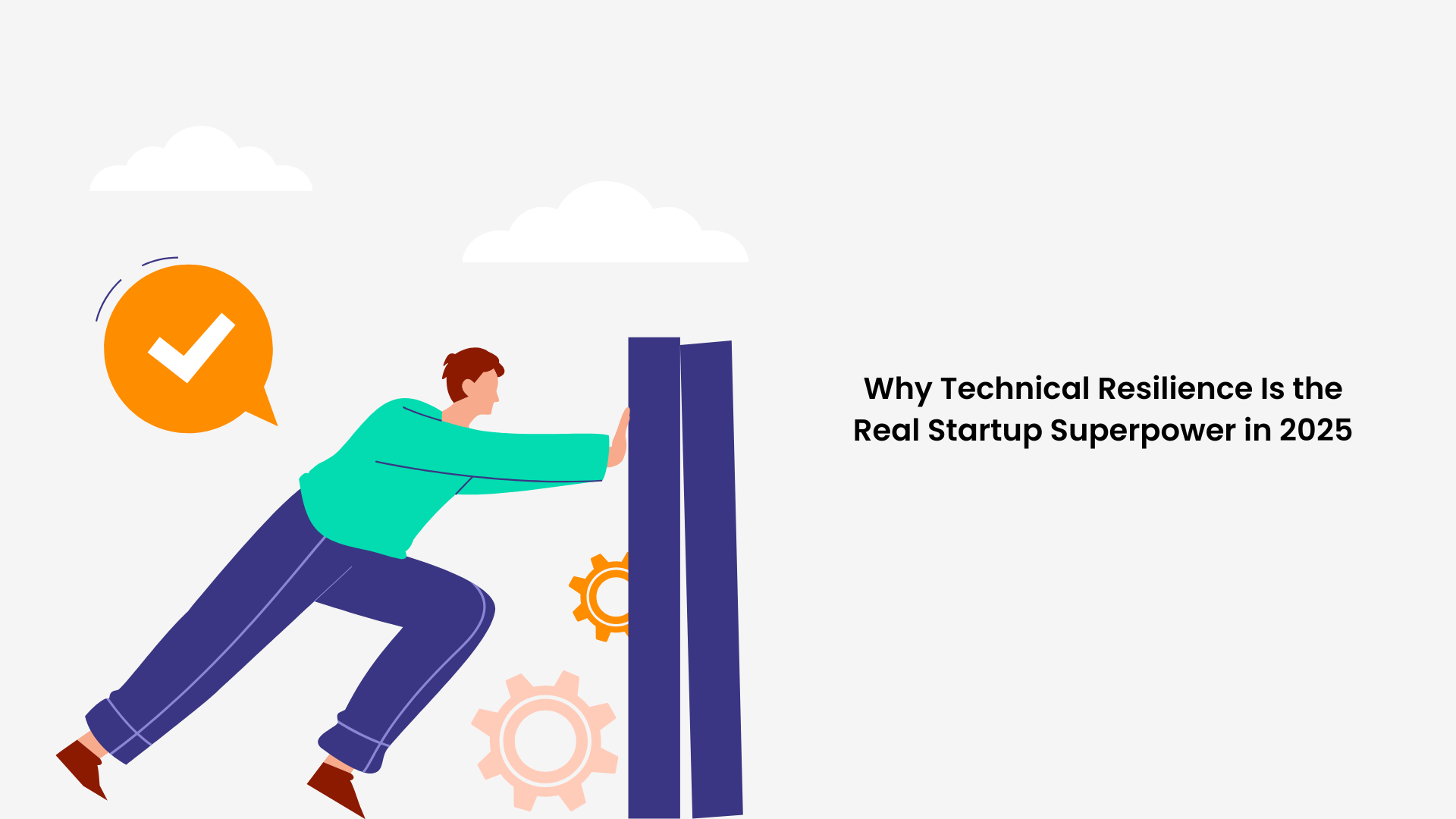Introduction
Most startups talk about speed. Move fast, ship fast, grow fast.
But in 2025, resilience separates the strong from the rest.
Technical resilience is the ability to handle failure, recover quickly, and keep shipping under pressure—and it’s becoming a defining trait of successful software teams.
1. Outages Are Inevitable—Recovery Is the Skill
No matter how good your stack is, something will go wrong:
- A third-party API breaks
- A region goes down
- A bug slips into production
The best teams don’t avoid every failure—they build systems and habits that bounce back fast.
Key habits:
- Clear runbooks and alerting
- Fast rollback and deployment systems
- Postmortems that lead to actual improvements
2. Resilience Starts in Your Architecture
It’s not just about how your team responds. Your system needs to be designed for failure from day one:
- Retry logic and timeouts
- Circuit breakers and fallback modes
- Redundant data storage and backups
- Graceful degradation when a feature fails
Resilience should be built in, not patched on.
3. Team Grit Matters as Much as System Uptime
Tech resilience isn’t only about systems—it’s about how your team handles pressure:
- Staying calm during on-call incidents
- Communicating clearly across time zones
- Fixing root causes, not just surface bugs
A team with grit doesn’t panic or play blame games. It stays focused, fixes fast, and improves the playbook for next time.
4. Resilience Builds Trust with Users
Users don’t expect perfection, but they do expect:
- Transparency when things break
- Consistent updates during downtime
- Honest timelines for fixes
When you respond quickly and honestly, trust grows. When you cover things up or go silent, it erodes.
Strong tech builds user trust. Resilient teams keep it.
5. You Scale Faster When You Break Less
Growth will only expose your weak points if your system can’t handle traffic, usage spikes, or edge cases.
Resilient systems:
- Scale with confidence
- Require fewer hotfixes
- Keep teams focused on progress, not firefighting
It’s not about moving slowly. It’s about building strong enough to go fast consistently.
Conclusion
Speed gets attention. Resilience builds longevity.
Startups that win in 2025 aren’t just fast—they’re unshakable when things get tough. They write code that recovers, build systems that adapt, and lead teams that don’t quit when it gets hard.
That’s what real tech strength looks like.

